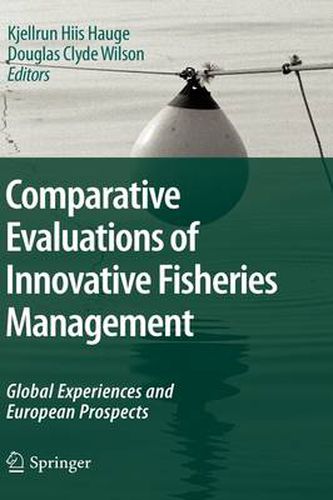Readings Newsletter
Become a Readings Member to make your shopping experience even easier.
Sign in or sign up for free!
You’re not far away from qualifying for FREE standard shipping within Australia
You’ve qualified for FREE standard shipping within Australia
The cart is loading…






This title is printed to order. This book may have been self-published. If so, we cannot guarantee the quality of the content. In the main most books will have gone through the editing process however some may not. We therefore suggest that you be aware of this before ordering this book. If in doubt check either the author or publisher’s details as we are unable to accept any returns unless they are faulty. Please contact us if you have any questions.
Comparative Evaluations of Innovative Fisheries Management begins with a look at four places outside the European Union known for innovative management: New Zealand, Nova Scotia, Alaska and Iceland. Then the focus shifts to the success criteria related to specific disciplines including biological and social robustness, economic efficiency and impacts on management costs. Hypotheses are tested using data capable of generating useful results. The main conclusions include a retrospective of how key concepts defined and represented the various perspectives, skills and backgrounds that made up the multidisciplinary CEVIS project.
$9.00 standard shipping within Australia
FREE standard shipping within Australia for orders over $100.00
Express & International shipping calculated at checkout
This title is printed to order. This book may have been self-published. If so, we cannot guarantee the quality of the content. In the main most books will have gone through the editing process however some may not. We therefore suggest that you be aware of this before ordering this book. If in doubt check either the author or publisher’s details as we are unable to accept any returns unless they are faulty. Please contact us if you have any questions.
Comparative Evaluations of Innovative Fisheries Management begins with a look at four places outside the European Union known for innovative management: New Zealand, Nova Scotia, Alaska and Iceland. Then the focus shifts to the success criteria related to specific disciplines including biological and social robustness, economic efficiency and impacts on management costs. Hypotheses are tested using data capable of generating useful results. The main conclusions include a retrospective of how key concepts defined and represented the various perspectives, skills and backgrounds that made up the multidisciplinary CEVIS project.